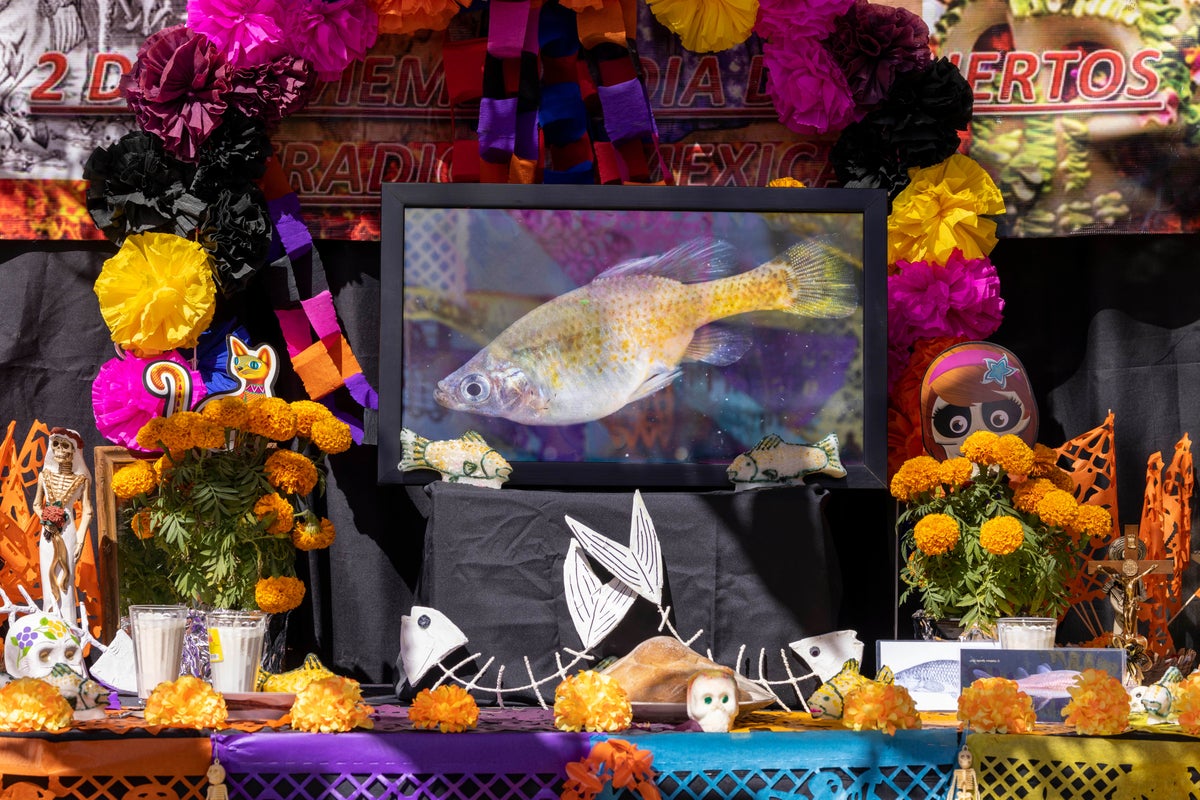
Leonardo DiCaprio has applauded Chester Zoo for “resurrecting” the population of a near-extinct species of fish in its native habitat in Mexico.
According to the UK zoo, golden skiffia have not been seen swimming in the Teuchitlan River, the only known home of the species, since the 1990s.
As part of this year’s Día de los Muertos (Day of the Dead) celebrations, a team of experts from Chester Zoo released more than 1,000 golden skiffia into the fish’s native range in Jalisco, central-western Mexico, following a conservation breeding programme.
Mr DiCaprio, 48, a Hollywood star and environmental campaigner, took to Instgram on Friday to applaud the efforts of those involved in the project.
The Chester Zoo team were thrilled with his patronage, and replied to the post, saying: “Thank you for sharing this incredible story!”
Mr DiCaprio’s post, which has racked up more than 282,000 likes, showed a photograph of a golden skiffia surrounded by brightly coloured flowers and colourful calaveras - the Mexican word for skulls - in reference to the Day of the Dead, which coincided with the release of the fish.
The Day of the Dead is a traditional Mexican celebration, when it is believed that people’s deceased ancestors return to the land of the living for one night to talk and spend time with their families.
Golden skiffia were brought to the brink of extinction by dam construction, water extraction, pollution and an invasive species in their river.
Following a sharp drop in numbers in 2014, a team of scientists from Michoacan University and fishkeepers from the Goodied Working Group worked to restore the water and remove any harmful species that could threaten the fish living there.
The breeding programme was successful in growing the population of fish and they were cared for by experts in the UK and Latin America.
The fish were kept in floating pods called mesocosm at Chester Zoo, where they lived for a month to help them adapt to natural conditions before they were taken to Mexico.
Before they were released, the fish were tagged so they can be monitored for five years to see how the population increases.
Paul Bamford, regional programme manager for Latin America at Chester Zoo, said: “This project is a great example of how zoos can contribute to conservation in the field through conservation breeding and research.
“By supporting freshwater conservation in Mexico and the ecosystems where the fish live, we’re not only protecting biodiversity and the wellbeing of freshwater environments, but also the people and communities that live alongside them.”
Omar Dominguez-Dominguez, a professor and researcher from the Michoacan University of Mexico, who is leading the golden skiffia reintroduction, said: “Releasing the golden skiffia at this time is a metaphor for how the species has come back from the dead to return to its home, not for one night, but forever.
“Knowing that universities, zoos and aquarists can come together to fix some of what has been destroyed and return to nature some of what has been lost is an amazing thing.”







